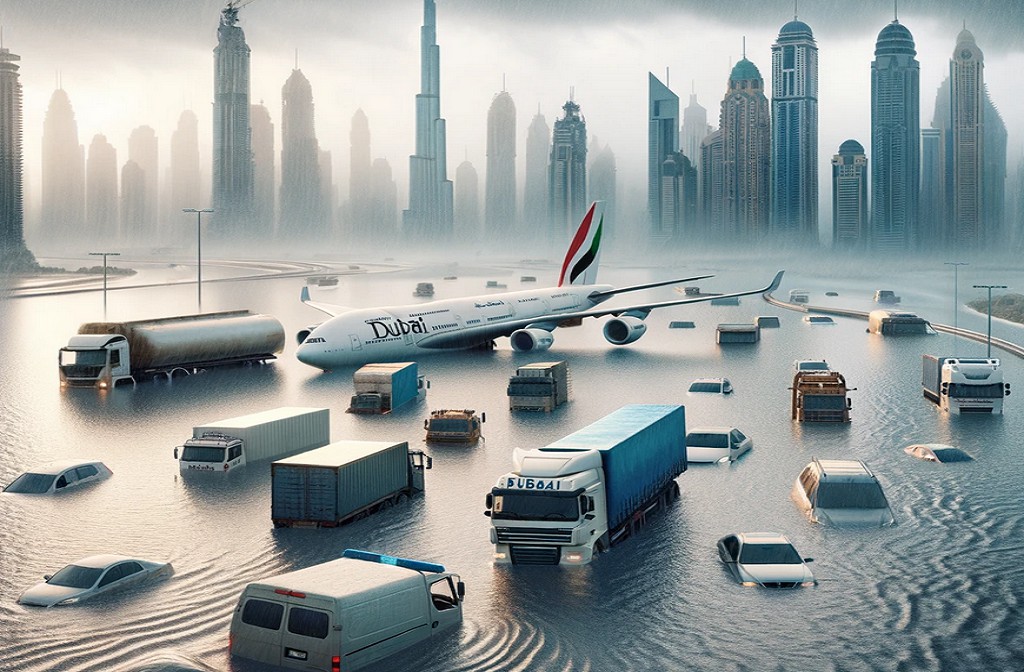The recent catastrophic flooding in Dubai was a brutal reminder that even the most advanced logistics hubs are not immune to extreme disruptions. The images of submerged highways, paralyzed ports and airports, and stranded goods starkly illustrate the vulnerability of our interconnected global supply chains.
As weather patterns become increasingly erratic and severe due to climate change, events like these are no longer anomalies. This has serious implications for business continuity. While fully preparing for extraordinary events is a challenge, Dubai’s crisis offers valuable lessons for businesses worldwide. It emphasizes the urgent need to shift from a “prevention only” model towards an approach centered on strategic resilience.
Key Takeaways: Acknowledging Limits & Building Resilience
- Insurance and Financial Planning: No physical safeguard can totally prevent damage in the face of overwhelming natural forces. Adequate insurance and financial reserves are essential to mitigate the long-term consequences of such unavoidable disruption.
- The Power of Networks: Cultivate strong relationships with suppliers, logistics providers, and others in your sector. These connections may be the lifeline for emergency sourcing and collaboration in dire circumstances.
- Proactive Stress Tests: Simulations and scenario planning focused on extreme events force us to confront potential weaknesses and develop streamlined crisis protocols.
- Cultivating Adaptability: Companies built on flexibility and an agile workforce adapt the best. This means cross-training, backup systems, and a focus on finding solutions under pressure.
In a world of increasing climate-driven disruptions, we must begin asking:
- How much risk is acceptable, and how do we balance proactive measures with the realities of operating costs?
- Are “just-in-time” supply chains too lean to withstand major shocks? Is it time for calculated redundancies?
- Can collaboration, even among competitors, become a survival tactic in periods of extreme crisis?
- How can we adapt supply chain infrastructure and practices to become more resilient in the face of increasingly unpredictable weather patterns?
Dubai’s experience may be exceptional in scale, but it’s a stark lesson in the need for change. Perfection is unachievable, but resilience is a strategic investment. This means rethinking risks, diversifying supply networks, fostering adaptability, embracing collaboration as tools of survival, and actively adapting to the challenges of a changing climate.

